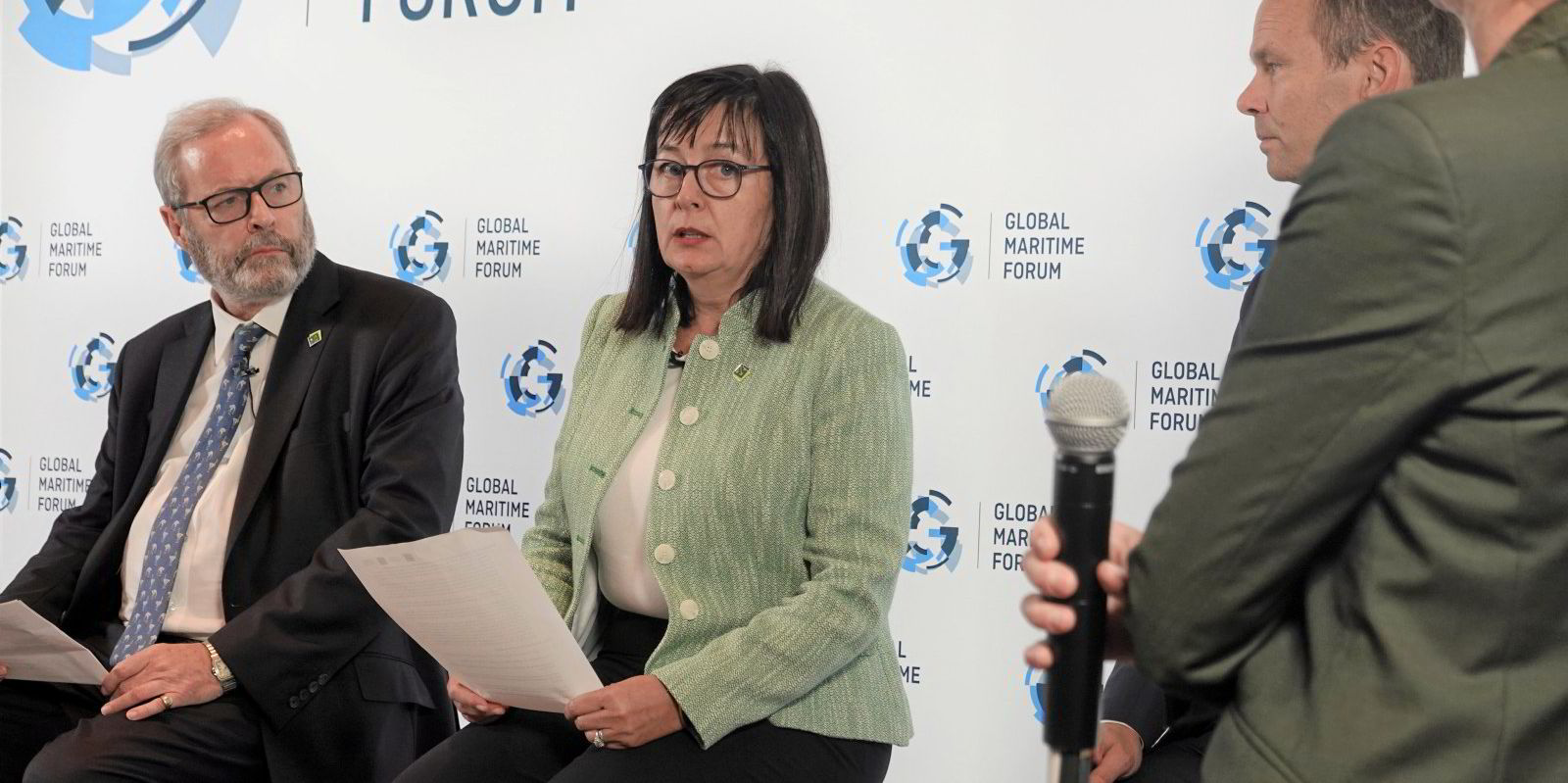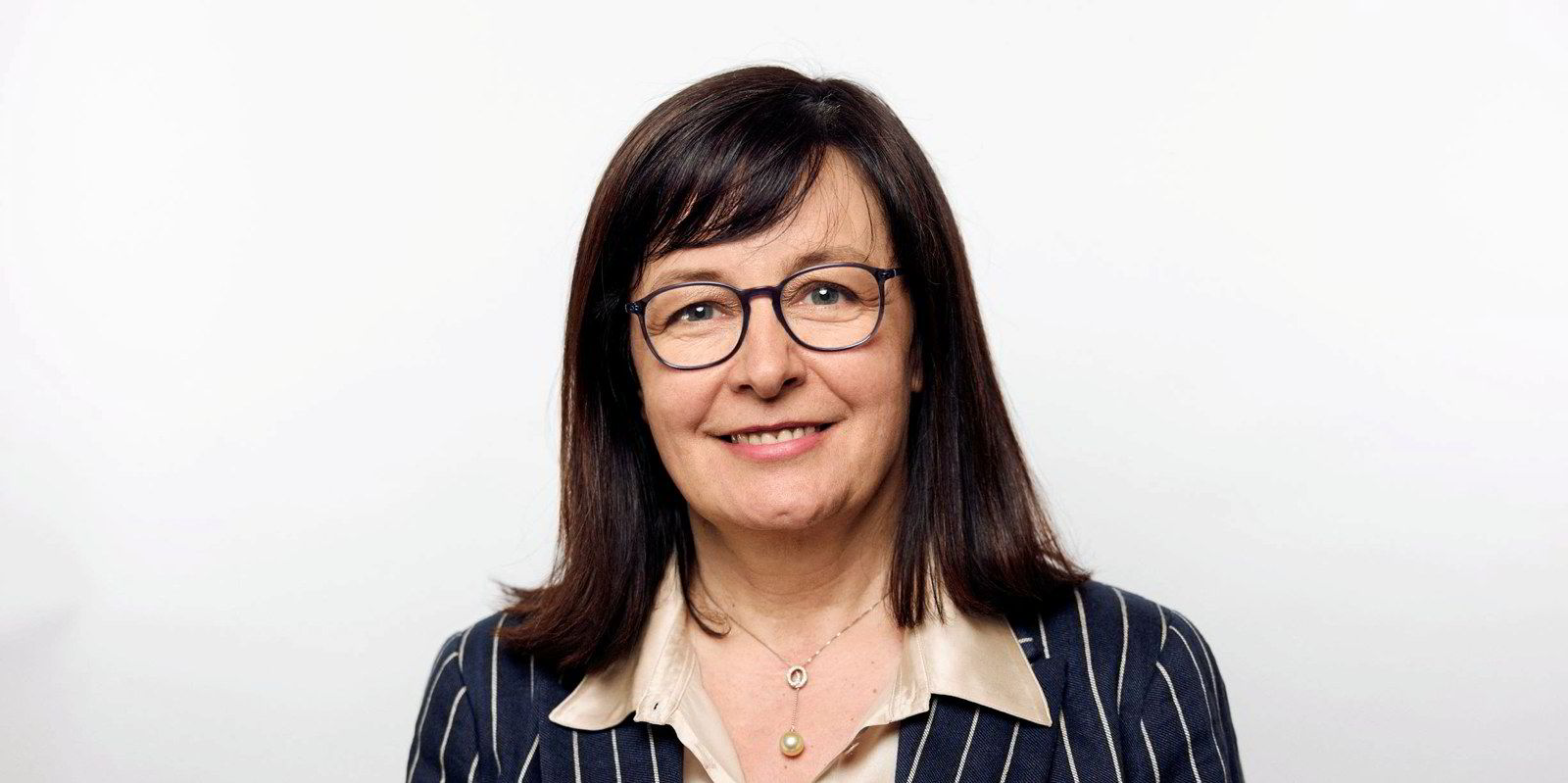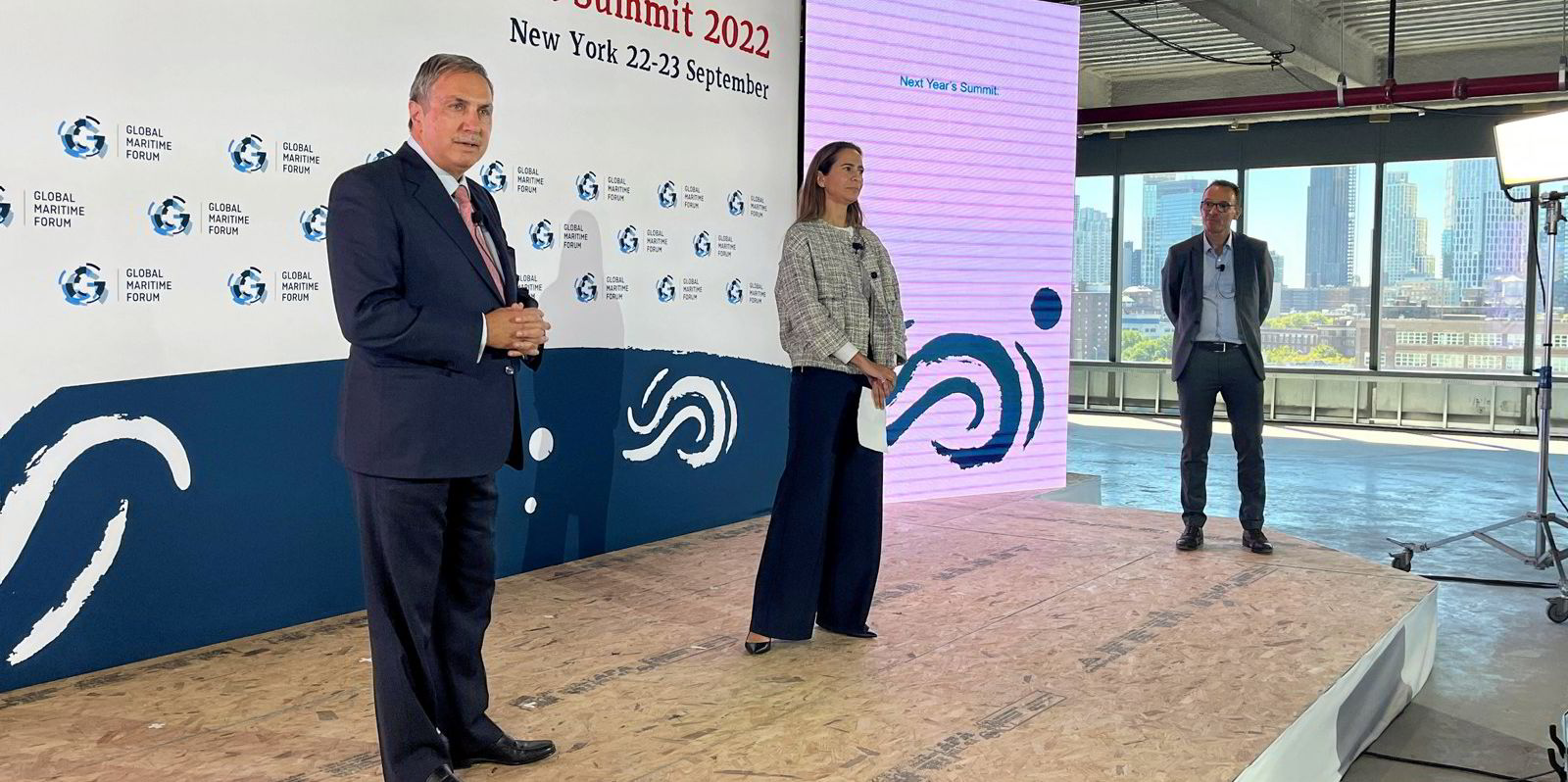After the Poseidon Principles committed to a more ambitious decarbonisation target for both ship finance and marine insurance, the initiatives will now look to plot a trajectory towards their tougher benchmarks.
Both Global Maritime Forum groups — created to set up frameworks for benchmarking finance and insurance portfolios against targets to reduce greenhouse gas emissions — have now aligned their targets to a zero-carbon shipping industry by 2050 and a path that meets with the Paris Agreement goals of capping global warming at 1.5C.
But their memberships may plot different trajectories for marine insurance and ship finance.
Michael Parker, chairman of the Poseidon Principles for Financial Institutions, said at the forum’s annual summit that the signatories aim to consider and approve a 1.5C trajectory in early 2023.
He said that would happen once “one or more has been published and received scrutiny”.
Parker and Paul Taylor, who is vice chairman of the finance Poseidon Principles and global head of shipping and offshore at French bank Societe Generale, said the initiative wants the industry to comment on potential 1.5C trajectories before one is chosen, so none will be adopted until one is published.
“There’s nothing to be gained from front-running,” Taylor told TradeWinds.
There had been hopes that a respected trajectory to a 1.5C-aligned goal would be issued over the summer, including one under development for shipping by the Science-Based Targets Initiative. The Net Zero Banking Alliance, a United Nations-convened industry group, is also looking to trajectories for shipping, and it remains to be seen how that will link with the Poseidon Principles.
The goal is for lenders in the Poseidon Principles to report at the end of 2023 for emissions in 2022 against two trajectories: one that provides a path to 1.5C and another that tracks an updated course expected to be set by the International Maritime Organization next year, with particular focus on the UN body’s targets for 2030.
Looking to 2030 first
While many hope the IMO will adopt a zero-emissions goal for 2050, instead of the current goal calling for 50% reduction in shipping’s carbon footprint from 2008 levels, Parker said he is confident that the UN body will provide guidance for 2030. That year is also a key target for the Net Zero Banking Alliance, and the 2024 Poseidon Principles aim to provide it with forecasts of portfolio emissions out to the middle of the decade.
Parker, who is also chairman of global shipping, logistics and offshore at banking giant Citi, said the Poseidon Principles finance group hopes to work closely with its insurance partners to choose the same trajectory.

“But we do recognise we have different methodologies because of the nature of our portfolios — long-term lending versus the annual analysis by the insurance industry, we would expect to complete the process of executing against the ambition by the end of July 2023,” he said.
Although the Poseidon Principles for Marine Insurance started later than its twin in finance, it was more ambitious out of the gate by already committing to benchmark insurance portfolios against a target of net-zero by 2050.
Aligning ambition
Patrizia Kern-Ferretti, head of marine at Swiss Re Corporate Solutions and chair of the insurance Poseidon Principles, said the new 1.5C target aligns the initiative with the Net Zero Insurance Alliance, of which her company is a founding member.
“The more we can align our shared ambition with insurance and finance, and the more coverage we have globally, the more impact we have to support our clients in the decarbonisation journey,” she said.
Asked about communicating targets with clients about the ambition in annual renewals, she said in the case of Swiss Re, the intention is not to withdraw cover from shipowners that do not comply with the insurer’s goals, but rather to work with them on their own carbon-cutting goals.
“The shipowners are approaching us to talk about this,” she said. “The level of awareness that we see with the clients that we have is huge. And the question is: how can you help us to take away part of the risk?”





